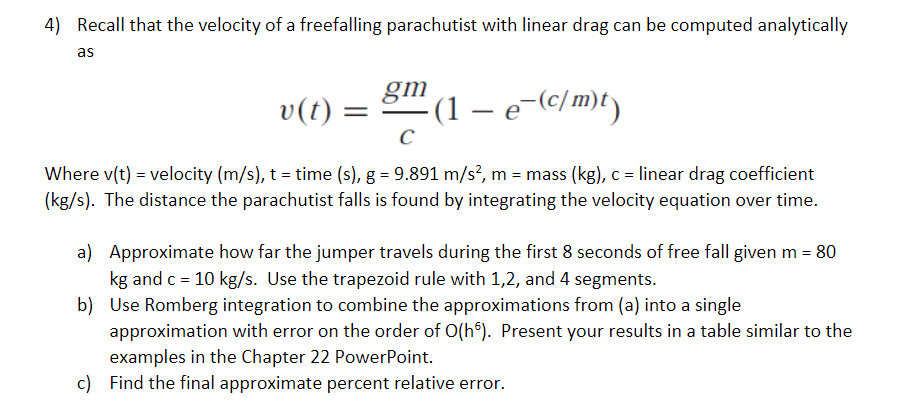Answered step by step
Verified Expert Solution
Question
1 Approved Answer
4) Recall that the velocity of a freefalling parachutist with linear drag can be computed analytically as gm where v(t) = velocity (m/s), t =

Step by Step Solution
There are 3 Steps involved in it
Step: 1

Get Instant Access to Expert-Tailored Solutions
See step-by-step solutions with expert insights and AI powered tools for academic success
Step: 2

Step: 3

Ace Your Homework with AI
Get the answers you need in no time with our AI-driven, step-by-step assistance
Get Started


